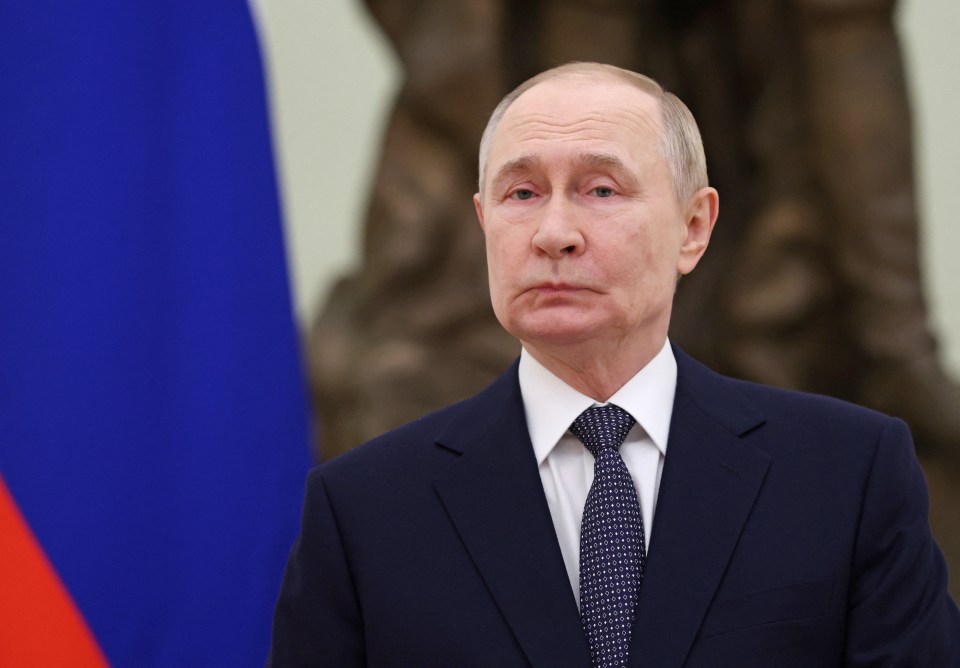THE Kremlin says Britain and France should reduce nuclear weapons stores, despite having more than both nations combined.
Putin’s representatives have said nuclear stores of both Britain and France should be included in negotiations to reduce stockpiles.
AFPVladimir Putin offered to extend the agreement for a further year[/caption]
Getty Images – GettyThe agreement enforces a controlled number of nuclear weapons either country is allowed to have[/caption]
Dmitry Peskov made the demands following a Russian proposal to the US to voluntarily maintain the limits on deployed strategic nuclear weapons for a further 12 months.
The level of weapons maintenance aligns with the New START arms control treaty, which is set to expire next year.
Peskov’s comments were a direct reaction to Trump saying he wanted to open the agreement – currently between Russia and the US – to include China.
In reference to France and Britain, Peskov said it was “natural… to talk [about the agreement] at the bilateral level”.
“New START is after all a bilateral document,” he said.
“But in the long term, you cannot remain abstract with these arsenals.
“All the more so that these arsenals are a component of the overall problem of global European security and strategic stability,” he finished.
The New START agreement was signed by former President Barack Obama and Dmitry Medvedev in 2010 and came into force a year later.
The agreement was first extended in 2021 for an extra five years after Joe Biden took office.
In 2023, Putin suspended Russia‘s participation, however Moscow said it would continue to observe the warhead limits.
France and Britain were never a party to New Start, or its precursor treaties.
Both countries have between 220 and 300 warheads each.
The agreement stipulates each country must have no more than 1550 actively deployed warheads at a time.
Russian forces have a total of 5580 nuclear warheads in the war chest, however has an estimated 1718 currently deployed.
The US has a total of 5177 warheads, with 1770 in active deployment.
GettyPeskov’s demands come despite Britain only have a total 120 nuclear warheads deployed[/caption]
What is the New START treaty?
By Patrick Harrington
NEW START, or the New Strategic Arms Reduction Treaty, is an agreement between Russia and the US over their nuclear weapons arsenals.
Under the terms of the deal, first cooked up at the end of the Cold War, both countries have agreed to cap the number of strategic nuclear warheads they can deploy.
It also limits the number of land- and submarine-based missiles and bombers that can deliver them.
The formal name of the treaty is Measures for the Further Reduction and Limitation of Strategic Offensive Arms.
New START is an extension of previous treaties called Start I, signed in 1991, and START II, signed in 1993.
The current agreement is due to expire in February 2026 but, due to disagreements over the war in Ukraine, Moscow and Washington have not yet begun negotiations to extend it
Peskov’s comments backed Putin’s diplomatic gesture, despite increasing Russian threats on Nato areas.
Last week, the Russian leader said he was willing to extend the terms of the treaty, saying “Russia is prepared to continue adhering to the central numerical limits under the New START for one year after February 5, 2026″.
“Subsequently, based on an analysis of the situation, we will make a decision on whether to maintain these voluntarily self-imposed restrictions,” he continued.
“We believe that this measure will only be viable if the United States acts in a similar manner and does not take steps that undermine or violate the existing balance of deterrence capabilities.”
Despite claiming to want peace in Ukraine, Putin has repeatedly crossed new lines.
Russian drones entered Polish airspace in a “deliberate” incursion – forcing Nato from Poland, Italy, the Netherlands and the US to shoot them down.
It was the first time since the outbreak of war that Nato has directly clashed with Russia.

